Astronomy
-
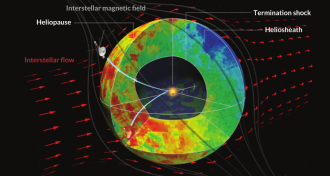 Astronomy
AstronomyNo long, twisted tail trails the solar system
The bubble that envelops the planets and other material in the solar system does not have a tail, new observations show.
-
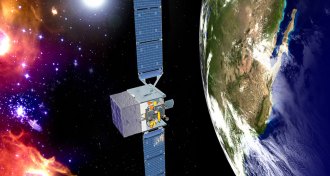 Physics
PhysicsGamma-ray evidence for dark matter weakens
Excess gamma rays are still unexplained, but they might not come from dark matter.
-
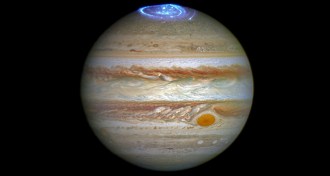 Planetary Science
Planetary ScienceJupiter’s Great Red Spot has company. Meet the Great Cold Spot
A previously unidentified dark mark on Jupiter has been dubbed the “Great Cold Spot” because of its temperature and resemblance to the planet’s Great Red Spot.
-
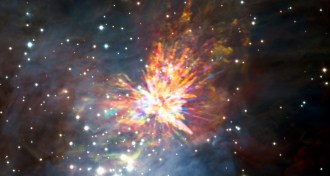 Astronomy
AstronomySquabbles in star nurseries result in celestial fireworks
Images from the ALMA observatory in Chile reveal that early days of stars can be just as fiery as their death.
-
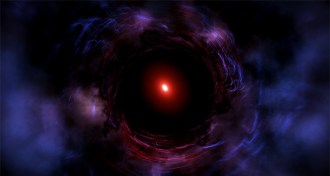 Astronomy
AstronomyMassive red, dead galaxy spotted in young universe
A hefty red, dead galaxy may raise questions about how galaxies formed in the early universe.
-
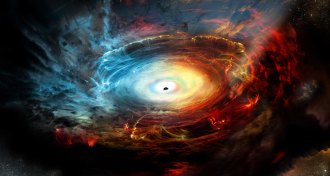 Astronomy
AstronomyEvent Horizon Telescope to try to capture images of elusive black hole edge
Network of radio observatories will attempt a first-ever glimpse at an event horizon.
-
 Tech
TechSpaceX launches and lands its first reused rocket
Aerospace company SpaceX has successfully reused a Falcon 9 rocket’s booster section for the first time.
-
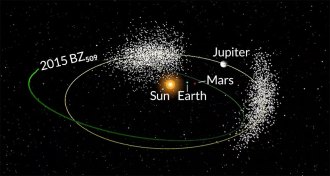 Astronomy
AstronomyAsteroid in Jupiter’s orbit goes its own way
Asteroid shares Jupiter’s orbit around the sun but travels in the opposite direction as the planet.
-
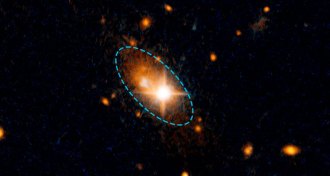 Astronomy
AstronomySupermassive black hole gets kicked to the galactic curb
Gravitational waves may have given a supermassive black hole a big kick, with enough energy to send it flying toward the edges of its host galaxy.
-
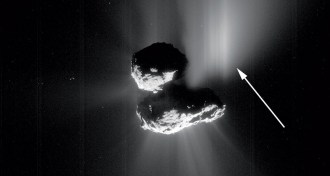 Astronomy
AstronomyClose pass by sun didn’t radically alter comet 67P’s landscape
Landslides on comet 67P shot plumes of dust into space, but changes like these might not radically alter the landscape of the comet.
-
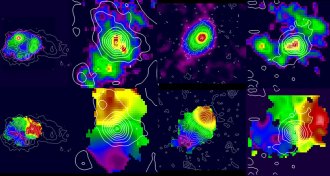 Astronomy
AstronomyDistant galaxies lack dark matter, study suggests
Slower-than-expected velocities of stars in distant galaxies, if confirmed, could reshape astronomers’ ideas of galaxy formation and evolution.
-
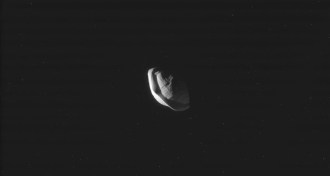 Astronomy
AstronomyIn new Cassini portraits, Saturn’s moon Pan looks like pasta
Photographs taken this week by NASA’s Cassini spacecraft provide a closer view of Saturn’s small moon Pan, which resembles ravioli.